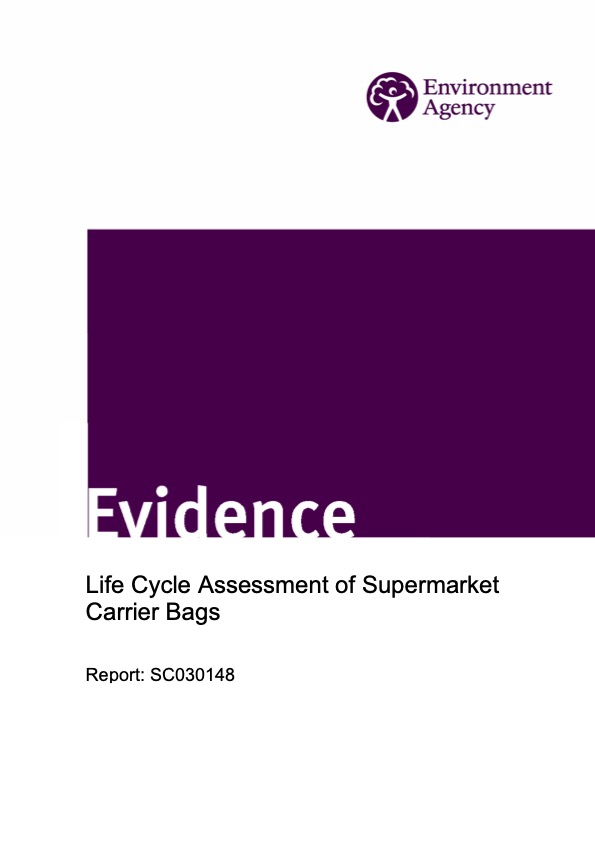In recent years, the relative environmental impacts of lightweight carrier bags and other options have been debated. By the Spring of 2009, 8 leading supermarkets had halved the number of single-use carrier bags used. However, questions still remain about the environmental significance of lightweight carrier bags, especially with regard to the wider debate on global warming.
Previous studies in several countries have looked at the environmental impacts of different carrier bag options. Their findings are interesting but are not directly applicable to the UK because of their geographical coverage and the assumptions made about the use and disposal of carrier bags by consumers. This gap, therefore, is what the study addresses.

This study assesses the life cycle environmental impacts of the production, use and disposal of different carrier bags for the UK.
In recent years, the relative environmental impacts of lightweight carrier bags and other options has been debated. By the Spring of 2009 leading supermarkets had halved the number of single use carrier bags used. However, questions still remain about the environmental significance of lightweight carrier bags, especially with regard to the wider debate on global warming.
The report considers only the types of carrier available from UK supermarkets . It does not examine personal bags nor carriers given out by other high street retailers. The report does not consider the introduction of a carrier bag tax, the effects of littering, the ability and willingness of consumers to change behaviour, any adverse impacts of degradable polymers in the recycling stream, nor the potential economic impacts on UK business.
This report is written by Dr. Chris Edwards and Jonna Meyhoff Fry for the UK Environment Agency in February 2011.
